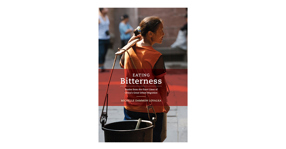Founders and Investors with illiquid assets, also known as complex assets, often ask our SVB Private Bank & Wealth Advisory team for guidance on the best way to donate to charity, especially during a high-income year. If this has been on your mind, consider donating highly appreciated public securities or illiquid assets to a Donor-Advised Fund. A DAF can be an impactful strategy to help reduce capital gains, and potentially offer you a fair-valued tax deduction, to help you accomplish your charitable goals.
For example, instead of selling highly-appreciated securities (publicly traded or complex assets) and donating the cash (which could take a lot of time and effort, and may trigger capital gains taxes), you could donate the securities to a DAF. The tax-efficiencies that result from donating complex assets (like private securities, restricted stock, and partnership interests) can be powerful tools when matched against tax obligations resulting from a high-income year. Plus, the charity will get the maximum benefit of your donation.
Below are ways that founders and investors can use a DAF to maximize their charitable giving.
Maximize deductions by donating complex assets.
Liquidating complex assets can be complicated, and the DAF can help. By donating to a DAF, you’ll get a receipt for the fair market value of your donation to prepare your taxes.11 The DAF will take the necessary steps to properly liquidate your gift and hold the proceeds in the fund until you are ready to make a grant.2 2 As always, remember to consult your tax advisor to discuss your individual giving.
Example: How an entrepreneur makes a gift of private stock works:
Claire owns C-Corp shares with a zero-cost basis currently valued at $3,000,000. She decides she would like to donate $500,000 of the shares to charity. Here’s how selling versus donating the shares compare:
|
Selling Shares Outright |
Donating Shares Directly to a DAF |
|
|
Alice sells $500,000 of her shares and donates the proceeds. |
Before the company is sold, Alice donates $500,000 of her shares directly to a DAF and the DAF sells the shares. |
|
|
Long Term capital gains tax paid: |
$119,000† |
$0 |
|
Charitable deduction: |
$381,000 |
$450,000 (10% discount)‡ |
|
Amount available for granting: |
$381,000 |
$500,000 |
|
Additional amount dedicated to charity: |
$119,000 |
|
† Long Term Capital gains tax @ 20% plus 3.8% Medicare surtax. Does not include local taxes
‡ Assumes a discount from FMV due to lack of control and minority interest
The fair market value of your donation of assets held for more than one year will need to be valued by a qualified independent appraisal in compliance with IRS rules, and itemized charitable deductions are limited to 50% of adjusted gross income. Still, excess contributions can be deducted for up to 5 years from the date of sale of the asset.3
Examples of complex assets you can donate using a DAF: PPrivate company stock (C-corp, S-corp), restricted stock, LLC and limited partnership interests, real estate, Pre-IPO shares, patents, personal property e.g., artwork, collectibles4, other miscellaneous capital assets, and certain alternative investments.4, other miscellaneous capital assets, certain alternative investments.
Give more to any number of charities.
After making your irrevocable donation to a DAF, the fair market value of your gift can flow through to recipients, tax-free. Importantly, instead of liquidating the asset and giving a lump sum to a single charity, the asset, now a part of the DAF, can be split up in any way you like, to benefit any number of charities.
Guide how your donations are invested.
Participation in a DAF means you continue to have a say in how your donations are invested and when they are distributed. As you recommend, donations can be invested and grow tax-free while they remain in the fund. Then, when you are ready, you decide when and to whom grants are made. Charities to whom you make grants must be a qualified tax-exempt nonprofit organization under section 501 (c) 3 of IRS regulations. .
Final thoughts
Whenever you are making charitable donations, it makes sense to ensure results are as tax-efficient as possible. The process can be involved and take time. We would be happy to help you streamline your philanthropic plans and make the most of your wealth, both for yourself and the charities you wish to support. Of course, prior to any transaction, consult your legal counsel and tax professionals.
We are ready to work alongside your legal and/or tax professional to help you determine the best solution to fit your needs. Let us know how we can help you.
Other SVB Private Bank Articles on maximizing your charitable giving:
Using appreciated equity for charitable giving
Tips for maximizing charitable giving
Footnotes
1. Your donations may exceed the standard deduction limits as outlined by the new tax law. In the case your deductions are less than $24,000, it may make sense to bunch multiple annual contributions into a single year so you can itemize deductions. Donors must obtain a qualified appraisal to substantiate the income tax charitable deduction they are claiming for non-publicly traded stock valued at more than $5,000. The donor reports this value on IRS Form 8283. Remember to consult your tax advisor to discuss your individual giving.
2. When donating securities, it is important to determine whether the sale has proceeded to the point at which you hold the right to receive proceeds from the sale as determined by the IRS. If a contribution is made after all the material terms of the sale have been agreed upon and there is no material risk that the sale will not close, the IRS may conclude upon audit that the contribution is an “anticipatory assignment of income.” In this case, the IRS could require payment of any capital gains tax that otherwise would have been due upon the sale of those shares (plus possible penalties and interest).
3. Charitable contributions of capital gain property held for more than one year are usually deductible at fair market value. Deductions for capital gain property held for one year or less are usually limited to cost basis.
4. Related use needed to claim fair market tax deduction.














